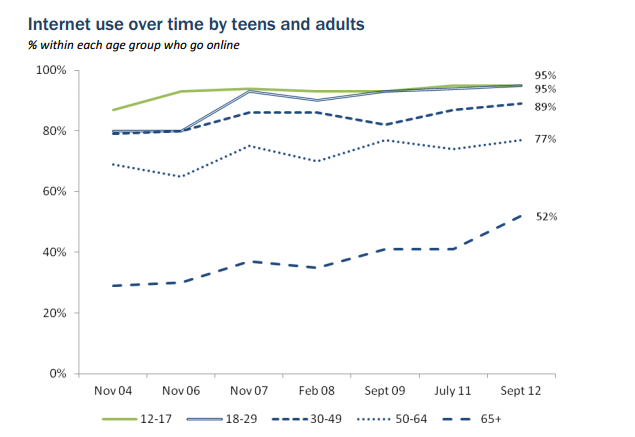Here you go: Our weekly roundup of the top safety articles of the week courtesy of SafeSoundFamily. Tim is featured twice this week!
Social and Cell Phone Monitoring Can Make Your Family's Life Better
In the current digital age, many families have tween and teenage children who spend significant periods of time on social media websites and mobile devices. While these outlets can be asset to children's social lives, they can also do more harm than good. Many parents are weary of enforcing heavy social media and cell phone monitoring because of the endless arguments that will result. However, doing nothing and letting tweens and teens have complete freedom is not the answer either. How do you find a balance? Consider creating an open environment for communication and compromise in which you and your children can discuss healthy limits and rules. The following tips will help you with this process.
-
When can a child join Facebook? The minimum age for creating a Facebook account is 13.
Digital Safety Rules You Should Definitely Enforce In Your Household
The world of parenting has evolved at a rapid pace in the recent past. Though the internet has been around for a few decades now, the access and content of this virtual world has changed drastically. Though we may not want to police our children to the point that they feel they are being virtually "jailed" we are right to set guidelines in this world as we would in the physical world. We don't hesitate to set boundaries about how far our children may roam on their own, and this same rule should apply to the internet.
Here are a few basic tenants to follow in digital parenting:
-
Children should allow parents assess to all of their internet passwords, which can include email. This is necessary in school, for parents must assess their children's homework through email and class websites. In addition to this, children should not have the freedom to own accounts that their parents cannot view. At some point in their adolescence a parent could revisit this idea, but it is certainly prudent to follow this guideline while a child is in their formative years.
How to Talk to Your Teen About Sexting
The National Campaign to Prevent Teen and Unplanned Pregnancy surveyed teens and young adults for a report on sex and technology. The results may shock most parents. Overall, 39 percent of teens, starting at age 13, send or post sexually suggestive text messages — known as sexting — as well as emails. Forty-eight percent of teens report receiving these NSFS (not safe for school) messages. Also, kids who start this practice young tend to increase their risky ‘net behaviors as they become young adults. The problem of sexting is so overwhelming and the consequences so severe, it’s not unfair to ask what a concerned parent can do?
Fortunately, there are some key actions parents can take to prevent impressionable teens from sending racy texts. The trick, say many experts, is to never stop talking to your teen, even if you think he or she has gotten the message. Girls, especially, are prone to feeling like they have to “please” a boyfriend or potential boyfriend. But the reasons for sexting, for both boys and girls, are mostly the same. They send racy messages to boys or girls they like, they send racy gossip about kids they dislike and they act out sexually for attention and to show off.
Guest Post: Six Deadly Sins of Online Gaming and Digital Parenting
Everything is good in moderation. That first piece of chocolate is delicious, but after the 20th piece you start and feel a little bit sick. A twenty minute jog may be a great idea, but a two hour jog can be torture. This is a concept that can be applied to all walks of life.Online gaming is an area this is definitely applied to. Online games, such as Ben 10 online games and Scooby Doo games, are great for children if played in moderation and used properly. If your child does not commit the following six deadly gaming sins then they will have great fun and you will take another step closer towards appropriate digital parenting.
Top 25 Family Safety Articles of the Week
Tim was once again featured on SafeSoundFamily's "Top 25 Safety Articles of the Week." Check it out for some of the best articles that were published this week!
Home Safety
-
Mike, from the NFPA’s Safety Source, reminds us that we should have changed smoke detector batteries when we moved our clocks forward. He also links to a free resource (PDF) on smoke alarm safety at home.
-
Judi, also of Safety Source, has some sound advice on cooking safety: never leave your stovetop unattended. This is an all-too-common (but preventable) cause of house fires.
Family & Child Safety
-
We all know that it’s harder to be nasty to another person’s face, but Tim of uKnowKids puts this in context: cyberbullying is faceless, and is therefore easier and more prevalent than traditional schoolyard bullying.
Newest Pew Research Center Study Has Big Impact On Online Parenting
Have you seen the results from the newest study done by Pew Research Center about teens and technology? You need to be reading it right now, the results will shock you. Here are some of the key findings:
-
78% of teens now have a cell phone, and almost half (47%) of them own smartphones. That translates into 37% of all teens who have smartphones, up from just 23% in 2011.
-
23% of teens have a tablet computer, a level comparable to the general adult population.
Online Parenting TMI: Sharing Information Puts Your Family at Risk
Social media overshares generally land somewhere on the "enjoyable spectrum" between a hoard of blood-thirsty mosquitoes and a Gilbert Godfrey recording on repeat. In addition to often being crass and irritating, social media overshares can lead to serious crimes and bullying. It’s time to wise up and teach your family proper social media etiquette, it could save more than just a reputation.
Don’t Leave Trails
While it may be tempting to countdown to your school vacation or brag about your weekend trip to the slopes, disclosing any dates or times you may be out of town is basically like slapping a “SITTING DUCK” sign outside your home. Even posting the cliché complaint about long school hours or grueling work schedules can be a tip-off to anyone looking for a mark to loot. Even if you trust everyone on your friend’s list, can you guarantee all of their friends are hundred percent trustworthy? Or, every single person on your list is at a zero percent risk of leaving their account open somewhere?
Protecting the Puzzle Pieces of Your Child’s Identity
This guest post is brought to you by Tami Nealy, Senior Director of Corporate Communication with LifeLock. Today, she writes about child identity theft protection, one of the latest digital dangers parents should be educated on.
Legal Concerns About Sexting
Sexting is a growing trend as more and more people use cell phones for more activities. As an adult, the decision to sext is left to an individual (though still discouraged) but if your child is sexting, could he or she face criminal charges? The negatives of pre-teens or teenagers sexting are plenty but being prosecuted for child-pornography is also a possibility.
How someone underage can be prosecuted:
Sending nude photos via text is a relatively new problem for law enforcement. Prosocuters try to keep child pornography from plaguing a society but your child could be caught up in it. Survey's show that about 1 out of every 5 teenagers have either performed or received some form of sexting. The problem is wide-spread and may only continue to grow.
Teenagers from multiple states have been prosecuted and are facing criminal charges that could affect the rest of their life. Here are a few things that you need to know:
-
Children are being prosecuted because most states and federal law consider any photo of a person under 18 to be a form of child pornography, no matter if the teenager was taking the picture of him or herself.
The Bully Without a Face - Cyberbullying
Mobile devices and the Internet have become monumental tools that continue to revolutionize the way people communicate with each other. These instruments foster several purposes, such as recreation, marketing and educational functions. However, it's unfortunate that some individuals use them for negative reasons the same as they would for positive aims.
What is Cyberbullying?
Cyberbullying is a form of bullying, or hostile behavior, that's executed through various technologies, including the Internet, cell phones, and tablets. Offenders text, email, or type negative comments on social media sites in order to embarrass, threaten, abuse, demonize, and publicly mock their victims. Those who are caught or reported to authorities for cyberbullying can face disciplinary action at their school or workplace and even undergo legal charges.
Top 25 Family Safety Articles of the Week
Another special shout out to the folks at SafeSoundFamily. Tim's article was once again featured as one of their best family and child safety articles of the week. Check out the other contenders!
Current Anti-Bullying and Cyberbullying Movements Around the Country
Bullying and cyberbullying are two of the most serious issues you will face in raising your children. These behaviors pose an immediate threat to your child's safety and if they are not handled swiftly they can cause long-term psychological damage that can affect everything from their personal relationships to their performance in school. Fortunately, parents, educators, and counselors across America are responding to these behaviors with some new and innovative approaches.
Leading the way, the federal government created Stopbullying.gov. Essentially, this is a one-stop shop of tools and resources where parents and educators can search for information that they can use at home, at school, and within their own communities. This fantastic resource provides information on how to recognize bullying, how to respond when it is discovered, and how to prevent it from reoccurring in the future.
While resources such as this have been extremely helpful in providing communities with support and information, some states have decided to take their anti-bullying and anti-cyberbullying efforts even further. This past year, the State of Delaware began considering legislation that would make it mandatory for schools in the state to report bullying and cyberbullying.
You Need To Add Location Monitoring To Your Child's Phone Right Now
The Numbers
According to the National Center for Missing and Exploited Children, over 800,000 people under the age of 18 go missing on an annual basis. Some of these are simple incidents of the child getting lost and reappearing later, surprised that everyone was so concerned. However, approximately 258,000 of these cares are outright abductions in some shape or form.
Put into perspective, ChildStats.gov notes that for the year the study used by the National Center for Missing and Exploited Children was conducted, there were roughly 71.9 million children in the United States. By these numbers, over a full percent of them would go missing each year. Looking at it another way, the average elementary school (476 students) would probably see one and a half of those students actually abducted sometime during the year, and several more simply not show up for reasons other than skipping.
Sex Trafficking via Facebook: The Latest Digital Parenting Concern
Most people frequently hear cases of cyberbullying or sexting gone wrong in the news, but recently, we were reminded that even more intense dangers exist out there on the world wide web. CNN Money did a great piece on this latest digital parenting concern entitled "Pimps hit social networks to recruit underage sex workers." We thought all of our readers needed to know about this latest digital dangers, so we are sharing the article today.
An interesting excerpt:
"It started with a Facebook Friend request....
Top 25 Family Safety Articles of the Week
It seems like our friends at SafeSoundFamily do a great job of rounding up the best safety articles of the week, and we especially like the "Online and Data Security" section. Check these articles out that included everything from a seatbelt designed for a pregnant woman to the most prolific Craig's list scams.
Increase Peace of Mind and Child Safety with Digital Training Wheels
Parenting in the digital age involves a whole new set of tools. Parents are facing technology with which they are not familiar, and the additional perils and parenting blind spots that technology can bring. By providing your child with Digital Training Wheels, you can increase your peace of mind and ensure that your child is using technology safely and responsibly.
Social Media Safety
Social networking sites and applications such as Facebook, MySpace, Twitter and Instagram open a window to the world which is largely unprotected. Not only do these sites give your child exposure to the world, but they give the world access to your child as well. By using tools that monitor your child's activity on these sites you can provide an extra level of protection in your child's life. You can see:
-
with whom your child is communicating
Blog Series: How Has Digital Parenting Changed?
As part of an on-going blog series that began three weeks ago, we have interviewed some internet safety experts, parenting experts and industry leaders and are pleased to present our findings. Our questions centered around 'digital parenting' and what people thought were the biggest issues regarding this subject.
Today we are featuring responses from our friend Tosin Williams, the founder of The Learning Period, an in-home tutoring service based in Los Angeles, CA.
uKnowKids: How has parenting changed with the introduction of so many digital devices?
Online Predators -- Are They Still a Threat?
A few years ago there was an extremely disturbing reality TV show called “To Catch A Predator.” The show was all about luring and then capturing men, who thought that they were meeting underage children for the purpose of sex. The show was taken off the air in 2008, but sent a chilling message to parents. The sexual predator has evolved and is no longer wandering around playgrounds with a bag of candy. They have become highly sophisticated internet experts, hanging-out online and infiltrating the sites where your children go. But is the online predator a threat?
Statistics
-
A recent survey that was carried out about internet predators, and asked over 1000 children aged between 10 and 17 concluded that:
-
A figure of one in thirty three children had been asked to meet someone secretly.
-
Just under a quarter of all child targets were aged 10 to 13.
Is Your Child a Cyberbully Without Even Realizing It?
As technology changes the way we live, young people find new ways to pick on each other. With the rise of the Internet and social media comes a new challenge. In the old days it was easy to tell when a child was bullying others, but now the lines are blurred to the point where kids may not even realize that their actions are intimidating not funny. Even worse, often the victims of cyberbullying are guilty of it themselves. Understanding the difference between bullying and cyberbullying can help you teach your children what is appropriate behavior online.
The Line Between Being Funny and Being a Bully
What appear to be harmless pranks really are not when done online. Once something is posted online, it is impossible to take it back. Here are a few things that kids may find funny that in reality is considered cyberbullying.
-
Using someone else’s information to login to gain information on the person or to post information under their login information.















.jpg)


